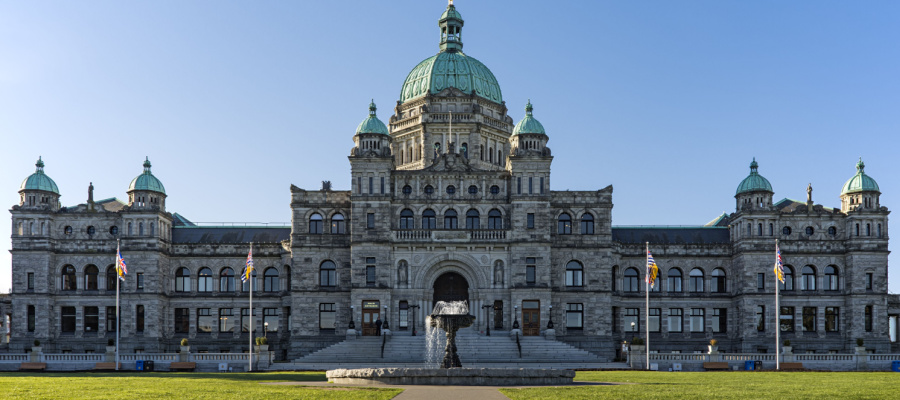BC Budget 2019: Maintain momentum building a universal, affordable, quality child care system
Now that the BC government has laid the foundation for a new universal, affordable, quality child care system with a major investment of $1 billion over three years, some might assume the job is done. However, years of stable investment and hard work will be needed to build on this foundation and transform the existing fragmented patchwork of expensive child care services with inadequate spaces and inconsistent quality into a coherent system of high-quality child care and early learning.
The good news is that we know how to do that because the evidence-based and widely endorsed $10-a-Day Child Care Plan includes a blueprint for action. Last year’s budget took some big steps forward. What we need now is for BC Budget 2019 to maintain the momentum with additional investments in child care.
Thousands of BC families have already seen their out-of-pocket child care costs decrease as a result of the new child care fee reduction initiative and Affordable Child Care Benefit. The BC government converted 2,500 child care spaces into prototype projects charging parents only $200/month or $10/day, with the fee waived for families with income below $51,000.
What we need is for Budget 2019 to maintain the momentum with additional investments in child care.
However, BC started from the position of being one of Canada’s most expensive provinces for child care as CCPA research has documented and more investment is needed.
A 2018 CCPA study mapped child care coverage rates at the neighbourhood level across Canada, revealing widespread shortages of licensed child care spaces and large geographical disparities in access to child care in BC in particular. Although all provinces have waitlists for child care services, Metro Vancouver families are particularly poorly served compared to families living in other large Canadian urban areas. Almost all postal codes in both Surrey and Burnaby are child care deserts (that is, areas with more than three children under five for every licensed child care space) despite the large number of young children living there.
Improving affordability for families received much of the focus of the last budget’s investment in child care, and the $10aDay Child Care campaign has a great summary of how the new financial commitments are distributed. BC Budget 2019 should dedicate additional funding to expand accessibility and quality child care as well as continuing to work on improving affordability.
Here are three steps the BC government can take in Budget 2019 to make this happen.
1. Improve access to child care by introducing a new capital budget to purchase and build publicly owned child care facilities
Budget 2018 allocated funding to open 22,000 new licensed child care spaces by 2020/21, with additional money to maintain and upgrade existing spaces. This was a welcome investment but most of these spaces are still to be built. The BC government must ensure the funding is utilized and table a plan for a further expansion of new child care spaces through 2021/22 and beyond.
Instead of simply making grants available and hoping providers invest in building new child care spaces—as is the current practice—BC Budget 2019 should include a capital funding allocation for publicly owned child care spaces so that the public can retain (at least some) ownership in the capital assets in which we invest. As the Coalition of Child Care Advocates of BC has suggested, the remaining capital grants funds from last year’s budget should be transferred to the new capital fund for child care. Just like schools, child care facilities are a crucial part of social infrastructure and the BC government can and should play a bigger role in creating new spaces.
This would allow for better coordination and capacity planning, with the goal to make child care available for all families that would like to access a full-time or part-time program. And, to meet local needs, the government must work in collaboration with individual communities. It goes without saying that resource and capacity planning for Indigenous child care and early learning on and off reserve must be done in partnership with local First Nations.
The Coalition of Child Care Advocates proposes using custom-designed modular buildings to quickly expand access to child care spaces across the province while a longer-term solution is being developed.
2. Enhance quality and address the recruitment and retention crisis in the child care sector by further raising wages
BC Budget 2019 should build on the Early Childhood Education workforce development strategy announced last fall and provide a $1-per-hour wage increase this fiscal year in addition to those announced for 2018/19 and 2020/21.
Raising wages in this notoriously low-paid sector is urgently needed to improve the quality of child care services in BC. The $10-a-Day Child Care Plan outlines other measures necessary to ensure child care programs provide high quality services, including high ratios of early educators to children, raising the educational standards for providers and funding ongoing professional development.
3. Further reduce child care fees for families
Building on the universal child care fee reduction introduced in Budget 2018 should be another top priority for the provincial government as fees continue to be unaffordable for many. Budget 2019 should include funding to expand the universal child care fee reduction program over the next three years to move fees towards the goal of $10/day for full-time programs and $7/day for part-time programs. As in Budget 2018, the reductions should be larger for infants and toddlers until fees are the same for all age groups. Without a sustained effort to reduce fees across the board, the BC government risks having the costs of the new Affordable Child Care Benefit balloon over time as providers raise their fees and more families qualify for higher benefit amounts.
Adding this all together
To fund these recommendations, BC would need to raise the public investment in child care to approximately $750 million in 2021/22 from the currently budgeted $464 million in 2020/21, with some additional funds for new child care capital projects.
As we have previously recommended, all public funding (both capital and operating) for new child care spaces should flow only to public or not-for-profit licensed programs to ensure public funds are not used to accumulate private assets. We support the Coalition of Child Care Advocates of BC’s recommendation that participation in the child care fee reduction initiative be made a condition for receiving public funding (as opposed to it being an optional program). This is already a condition for receiving public capital funds through the BC New Spaces Fund and it should be extended to operating funds as well.
Building a universal, affordable, quality child care system in BC is a smart use of public resources that will have ripple effects across the provincial economy by:
- Removing some pressure from young working families by freeing resources to pay off student loan and mortgage debt.
- Providing a good start for all BC children.
- Allowing more parents (particularly mothers) to participate in the workforce, increasing tax revenues almost immediately.
- Creating new jobs.
The BC government is off to a good start and must maintain the momentum in Budget 2019 to fully realize these benefits for children, families and communities across the province.
Topics: Children & youth, Features, Provincial budget & finance






